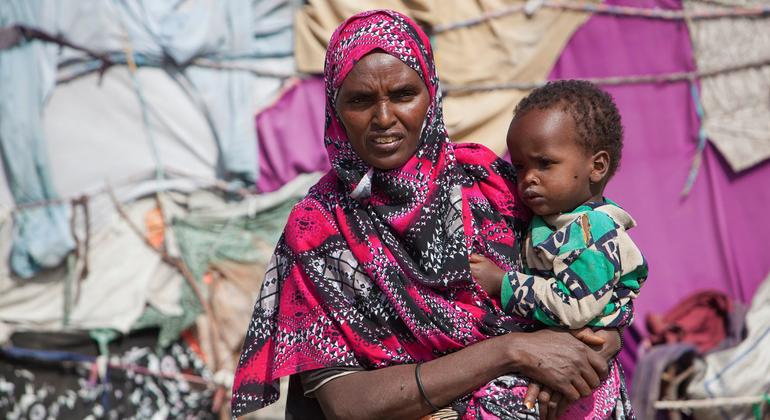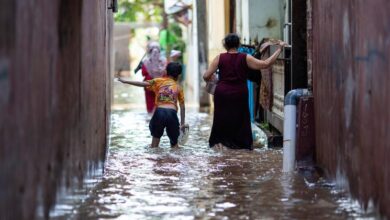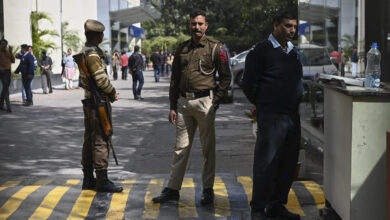Somalia: ‘We cannot wait for famine to be declared; we must act now ‘|


Due to drought and lack of livelihood support, people living in 8 regions of the country could experience famine in September.”We cannot wait for the famine to be declared; We must act now to protect livelihoods and lives“Rein Paulsen, Director of FAO The Office of Emergencies and Resilience said, following a recent visit to the country.
More than three million animals essential to livestock communities in Somalia have died to date, and crop yields have fallen dramatically due to unprecedentedly poor rainfall and severe dry conditions.
The continued death of livestock, further increases in the prices of key commodities, and the loss of humanitarian assistance to the most vulnerable have forced many people living mainly in rural areas to move to rural areas. relocation camp.
Urgent funding issues
To assist 882,000 people across 55 districts with immediate life-saving and livelihood assistance, FAO Somalia urgently requests $131.4 million. But efforts to prevent famine in Somalia are only 46 percent funded, and 2022 Somalia Humanitarian Response Plan funded only 43%, as of Aug. 4.
The latter is part of a broader FAO Drought response plan in the Horn of Africa, which also includes Kenya, Ethiopia and Djibouti. “We have urgent funding problems,” Mr. Paulsen said.
FAO has been “Warning bells” since last April and the failure of successive rains, but the response “has not occurred to the extent necessary”. This has resulted in vulnerable farmers “forced to move because livestock are dying and crops are failing. Now people have to mobilize fast and scale,” he added.
Impact of drought
“We are extremely concerned about the drought situation and the extent to which vulnerable households are affected,” said Paulsen, describing how a family of seven traveled more than 100 kilometers to reach the site. to the camp for displaced people seven months ago.
“They come here because their livestock is dead. They come here because they don’t have the means to survive in the countryside,” he explained.
Agricultural intervention
Agriculture accounts for 60% of Somalia’s gross domestic product, 80% of its jobs and 90% of its exports.
Mr. Paulsen stressed it is extremely important to understand that agriculture is a frontline humanitarian response. “It not only fulfills the needs, but effectively reduces the drivers of those needs. Agriculture needs more attention and more funding to be able to act in time to respond to the agricultural seasons“I said.
Scaling the response
According to Mr. Paulsen, the response in rural areas must be expanded to help vulnerable people “where they are” because this is “more effective [and] more humane”.
He called for a “multi-sectoral response” to support livelihoods, but warned that more “funding from donors” was needed. The focus is on livelihood supportMr. Paulsen explained.
This involves providing cash to allow people to buy food and keep their animals alive with emergency feeding, veterinary treatment and water supply. Farmers must be able to grow crops, especially in riparian areas, where cropping with irrigation can be done.




